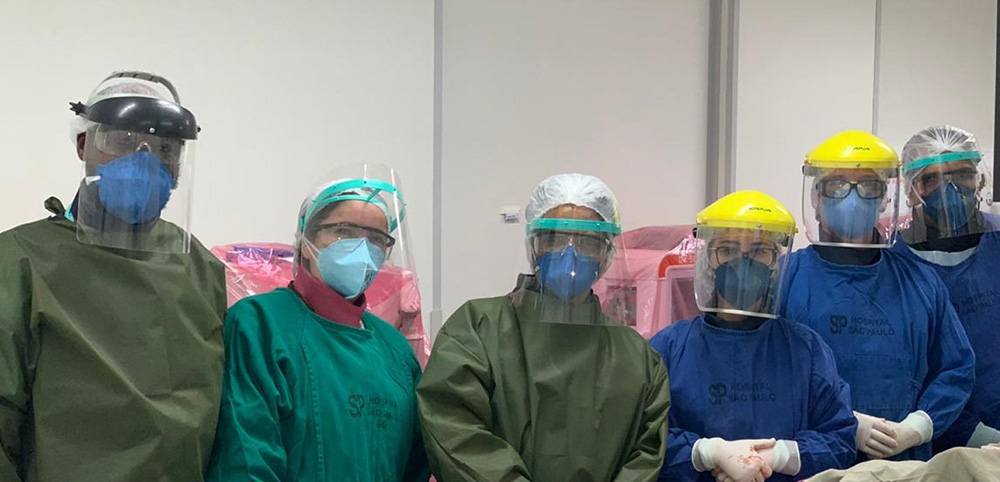By Eduardo Alexandrino Servolo Medeiros, Associated professor, Escola Paulista de Medicina (Unifesp), Hospital São Paulo, CCIH, Discipline of Infectious Disease, and Researcher, Conselho Nacional de Desenvolvimento Científico e Tecnológico – CNPq, São Paulo, SP, Brazil
The editorial “Health professionals fight against COVID-19” published in Acta Paulista de Enfermagem (vol. 33) discusses the main challenges of health professional in the care for patients with COVID-19. The editorial aimed to shed light on risk that health workers are exposed in day-by-day, fighting coronavirus pandemic, and how Brazilian hospital are guaranteeing the safety and quality of care.
In Brazil, thousands of nurses, physicians, and physiotherapists are leaving their positions due to COVID-19 infection. Frontline health professionals have demonstrated physical and mental exhaustion, anxiety for losing a patient and a colleague, and also for the risk of infection and possibility of passing the infection to their family.
As the pandemic grows, the adequate access to personal protective equipment (PPE) for health professionals is a constant concern. The scarcity of PPEs is being observed in a number of Brazilian facilities as well as in many countries. The provision of PPEs in health institutions must be a state policy, and governments must mobilize the national industry to respond to this challenge. Unfortunately, this is not what we have been seen, costs of PPEs, especially disposable aprons and facemasks, have been significant inflated in association with disruptions in the supply.
COVID-19 also show the social inequalities in Brazil. The pandemic emerged in wealthy neighborhoods but the number of cases in low-income neighborhoods is rapidly growing, like the capital of Sao Paulo, Brazil, where poor urban areas show a higher number of deaths. Other factor that could be not forgotten is that many health care workers leave in poor urban areas of cities, and a new infection wave will certainly reach hospitals and this may restrict many health care workers from practicing. Before the time that a successful vaccine is made available for the public at large, health professionals should be actively within communities where they live by providing information, instructions and reinforcing social isolation.
The main challenges for hospitals, such as the Hospital Sao Paulo of the Federal University of Sao Paulo (UNIFESP), are to reorganize the care provided, to increase the number of beds in the intensive care units, to guarantee adequate supplying of PPEs, particularly facemasks to all, and to have adequate number of trained professionals available for the safety and quality of care. Next steps suggested by researchers to Hospital Sao Paulo are testing of health professionals, providing rapid diagnosis to all professionals, and guaranteeing medical and psychological care for all those who need them, in addition to create new care circuit to avoid infection transmission both for health professionals and patients hospitalized due to other causes.
Teaching hospitals should prioritize research funding to advance understanding of the many facets of this disease. Health care providers should improve communication among multidisciplinary teams, empathy, and continuous self-education to face this major historical challenge.
To read the article, visit
MEDEIROS, E.A.S. Health professionals fight against COVID-19. Acta paul. enferm. [online]. 2020, vol. 33, e-EDT20200003, ISSN: 1982-0194 [viewed 03 July 2020]. DOI: 10.37689/acta-ape/2020edt0003. Available from: http://ref.scielo.org/htp754
External links
Acta Paulista de Enfermagem – APE: <http://www.scielo.br/ape>
Como citar este post [ISO 690/2010]:




















Recent Comments